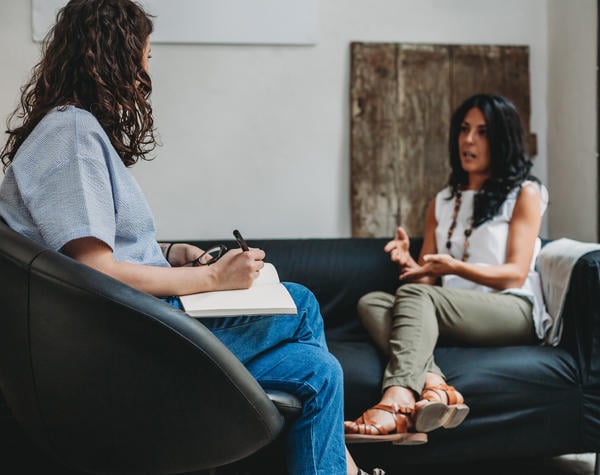If you’re fascinated by the inner workings of the human mind and keen to work in mental health, an array of fulfilling career paths await.
From providing therapy to clients, to facilitating organisational change, supporting young people through adolescence and helping couples work through difficulties, working in mental health is dynamic and rewarding.
So, should you study psychology or counselling? Although the two terms are often used interchangeably, there are some important distinctions. Understanding the difference can help you figure out which study and career path suits you best.
Psychology vs counselling
Psychologists are trained in the science of how people think, feel, behave and learn. Many psychologists work in therapeutic settings, assessing people’s concerns and life circumstances. They provide help with mental health conditions like depression, anxiety, stress and eating disorders.
‘Psychologists have special training in diagnosis and assessment, and they tend to support people with more severe mental health problems,’ says Dr Tristan Snell, a counselling psychologist and senior lecturer in psychology at Deakin University.
Careers in psychology tend to take place within more of a medical framework. Psychologists use treatments like cognitive behavioural therapy, which identifies and challenges unhelpful thoughts and behaviours, and tools like psychological testing to inform strategies for therapy.
Counsellors adopt a more person-centred approach, says Dr Snell. ‘If you went to see a psychologist, they would probably do quite a comprehensive assessment to begin with, whereas a counsellor would begin by listening and discussing what your goals are,’ he says.
Counsellors help people tackle problems in a positive way by helping to clarify issues, explore options and develop strategies. ‘Counsellors are experts in listening and helping people achieve their personal goals,’ says Dr Snell. ‘They don't tend to do diagnosis or assessment, but they will support people with mild to moderate symptoms of mental illness.’
Beyond one-on-one therapy, psychologists and counsellors work in a wide range of professional settings. You’ll find psychologists working with corporates to improve workplace culture, in schools to support children and young people, and with athletes to boost performance. Counsellors often work in-house for not-for-profits, government departments and helpline services.
How to become a counsellor or psychologist
In Australia, psychology is a regulated profession, which means everyone calling themselves a psychologist must be registered with the Psychology Board of Australia and listed with the Australian Health Practitioner Regulation Agency (AHPRA).
Registered psychologists undergo a minimum of six years of university study and supervised experience – typically a three-year undergraduate degree, a one-year honours degree or graduate diploma, and a two-year masters degree.
At Deakin, you might study a Bachelor of Psychology or Bachelor of Psychological Science, followed by an honours year or a Graduate Diploma of Psychology (Advanced), finishing with a Master of Psychology (Clinical) or Master of Psychology (Organisational). After two more years of supervised practice, you can become an endorsed clinical or organisational psychologist.
Students can also choose the ‘5+1’ internship pathway to graduate as a generalist psychologist. This involves a three-year undergraduate degree, a one-year honours degree or graduate diploma, a one-year Master of Professional Psychology, followed by a one-year internship in the field.
Counselling is a self-regulated profession. Organisations like Australian Counselling Association and Psychotherapy and Counselling Federation of Australia require counsellors to complete an accredited course of study. Deakin’s Graduate Certificate of Counselling, Graduate Diploma of Counselling and Master of Counselling teach essential knowledge and skills in counselling.
On the books: The study experience
Counselling courses teach the nitty-gritty of listening and responding to clients. ‘The training in counselling is very practical,’ says Dr Snell. ‘You learn about empathy and positive regard – the counselling ‘micro skills’ – to make sure you graduate with fundamental listening skills, which are essential for counsellors.’
Study psychology and you’ll cover a lot of assessment and diagnosis theory. You’ll learn counselling skills too, but the focus is on the technical aspects of different therapeutic approaches. ‘This is because psychologists are often dealing with more severe kinds of pathology,’ says Dr Snell.
There’s also an extensive placement component in the Master of Psychology comprising about 1000 hours. For a counselling course like Deakin’s Master of Counselling you’ll complete 240 hours of placement.
Sold on a career as a psychologist? Check out Deakin's psychology courses

